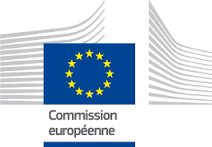As the SVI is not a health organization, it is essential to consult a professional before leaving on a project in a foreign country. Don’t forget that before your departure for your project, a medical check-up is compulsory, to take stock of any vaccinations you may need and any recommendations you should follow. Don’t wait until the last minute to make an appointment!
Doing some research
Vaccinations cannot be scheduled the day before departure! Think about it at least a month in advance and plan your schedule with your general practitioner (GP) or an approved vaccination center. Volunteering is a good opportunity to take stock of your vaccinations, as well as visiting your dentist and general practitioner. Tetanus, diphtheria, poliomyelitis, and hepatitis B are basic vaccinations that must be kept up to date, whatever your plans for volunteering. For other vaccinations, the approach is individualized. Many hospitals have accredited vaccination centers. Contact them. They can provide you with information and conduct the vaccination. Your GP can also be useful.
Please note that some countries outside Europe require you to have been vaccinated against yellow fever within the last ten years, and to hold an International Certificate of Vaccination or Prophylaxis (see below). Check with the embassy of your destination country well in advance.
For further information about local health conditions and get advice, visit the following websites:
- http://www.cimed.org/
- http://www.who.int/countries/fr/
- http://wwwnc.cdc.gov/travel/destinations/list.aspx
Updated information on the situation in each country is available on the Institut Pasteur and Passeport Sante websites. This information does not replace the advice that only a doctor can give you, based on your general condition and the country you are visiting. A list of vaccines available in Belgium and their prices is available on the website of the Antwerp Institute of Tropical Medicine.
For further information about vaccinations:
You will find up-to-date information on the health situation in your destination country here. The World Health Organization publishes a regularly updated world atlas of vaccine-preventable diseases.
The International weekly bulletin (Bulletin hebdomadaire international, in French) shows a weekly health crisis report on new health events occurring abroad and likely to pose a health threat in Europe and abroad.
- In Belgium: http://www.passeportsante.be/
- In France: http://www.muskadia.com/
- In Switzerland: http://www.safetravel.ch/e
Not all vaccines are reimbursed by the social security system. Check with your mutual insurance company.
Getting ready
Wherever you plan to travel, it’s a clever idea to take a small travel pharmacy with you, because medicines commonly used in Belgium are not always available abroad. They don’t necessarily have the same name either, and if you don’t know their composition, you may have trouble finding them. Furthermore, in some countries, economic conditions mean that local supply can sometimes cause problems: shortages, counterfeiting, under-dosing, expiry, etc.
The contents of your pharmacy will depend on the type and duration of your trip, any health problems you may have, and the degree of isolation of your host country (in Nepal, for example, some work sites can be several days’ walk from the nearest hospital). We strongly advise you to talk to your doctor or pharmacist about how making it. If necessary, ask them for clear, succinct, case-by-case written instructions for use of the medicines they recommend.
Remember to divide your important medications (including contraceptives) between hand baggage and suitcases. Baggage theft or lost suitcases at airports can sadly occur.
If you are a woman, for certain developing countries or projects in remote areas, bring a supply of tampons and sanitary towels. In some places, they are hard to find and can be expensive.
- Small items: thermometer, sterile compresses, plasters, compression bandages
- Disinfectant (ointment, individually wrapped or impregnated compresses)
- High SPF sunscreen + lip balm
- Mosquito repellent (for body and clothing, bed nets, insecticide)
- Single-dose eye drops and disinfectant eye baths (especially if you’re going to the beach)
- Re-hydration kit if you are going to hot climates
- Contraception: Don’t forget your contraception and/or condoms.
- Medication: In addition, you may need to take specific medications prescribed by your doctor or recommended by your pharmacist. For example, antihistamines if you have allergies, remedies for travel sickness, treatments for health problems or even epidemics in the region where you are going. If you are worried about aches and pains, fever, diarrhea, constipation, colds, digestive problems, etc., talk to your doctor, who will tell you which medicines to take. If you need specific medication, it’s a good idea to take along a brief medical report signed by your doctor (and translated into English if necessary) describing your case and the treatment you need.
- Hygiene products: toilet paper, sanitary towels (rare commodities in some Third World countries).
- Earplugs (sometimes very useful if you sleep in a dormitory).
The health precautions you need to take are not limited to your time abroad. On your return, especially if you have been in a tropical region, be attentive to any unusual signs such as:
- Fever;
- Diarrhea;
- Headaches;
- Skin rashes.
If you experience any of these symptoms, you should consult your GP, who will prescribe further tests, if necessary, to check if it’s a “travel-related” illness or not.
In practice
Yellow fever is a viral disease transmitted by certain mosquitoes. The disease can take the form of influenza, but also jaundice.
Where? In tropical Africa and South America. Check World Health Organization (WHO) statistics.
The vaccine: recommended and even compulsory. It must be taken at least 10 days before departure and is valid for 10 years. It must be recorded on the yellow international certificate, signed by the vaccinating physician, and bearing the official authentication stamp.Please note that many countries require proof of yellow fever vaccination if you have travelled through a region affected by this disease. Without such proof, you may be refused entry to the country, placed in quarantine, or required to receive the vaccine.
Cholera is an acute intestinal infection caused by bacteria. The greatest risk for the patient is dehydration. Cholera is characterized by frequent diarrhea.
Where? Asia, Africa, and Latin America. See the WHO website.
What to do? Follow the country’s basic rules of hygiene: wash your hands regularly, for example. Some African countries still require a vaccination certificate. For these countries, to avoid problems at borders and airports, a certificate of contraindication to vaccination may be useful in some cases.
Meningitis is an infectious disease characterized by infection of the membranes covering the brain (meninges).
Where? Mainly in Africa. Check WHO statistics.
The vaccine: You can be vaccinated against four types of meningitis: A, C, W and Y. The injection must be given at least 10 days before departure and is valid for 3 years.
Hepatitis A is caused by a virus which, once in the body, causes liver dysfunction. Symptoms may include sudden fever, malaise, loss of appetite, nausea and abdominal pain, and jaundice in the days that follow. Hepatitis A is mainly contracted through food.
Where: Mainly in Africa, Latin America and Asia.
The vaccine: A first injection, no later than the day of departure, provides protection. A booster after one year provides protection for at least 20 years, and probably for life.
This disease, transmitted by sex, blood and saliva, is much more serious than the previous one. In most cases, hepatitis B or C goes undetected. It manifests as fatigue, jaundice, loss of appetite or joint pain.
Where? Everywhere.
The vaccine: Vaccination involves two injections, 1 month apart, followed by a booster 6 months later. Protection is generally for life. Please note that there is a combined vaccine: hepatitis A and hepatitis B (in three injections).
Polio is caused by a highly contagious virus. The disease causes progressive paralysis and can even be fatal.
Where? Potentially everywhere. Check WHO statistics.
The vaccine: This is the only vaccine that is compulsory from childhood in Belgium. A booster in adulthood is recommended if you travel to Africa or Asia.
Typhoid is a serious infection, accompanied by a high fever, rarely accompanied by diarrhea. It is transmitted by ingestion of contaminated food or water.
Where? The risk is highest in North and North-West Africa, India, and Peru.
Vaccination: recommended if you are traveling in unhygienic conditions, at least 15 days before departure. It is valid for 3 years.
Malaria is a disease (sometimes fatal) transmitted by mosquito bites.
Where? The disease is endemic in over a hundred tropical and subtropical regions. Check de WHO map here.
Vaccine: There is no vaccine against malaria. Malaria prevention involves a combination of protection against mosquito bites (mosquito net, repellent, long clothing) and chemoprophylaxis. Preventive treatment should be started before departure and continued for some time after your return. Depending on your destination and your state of health, your doctor will advise you on the most appropriate type of treatment.











